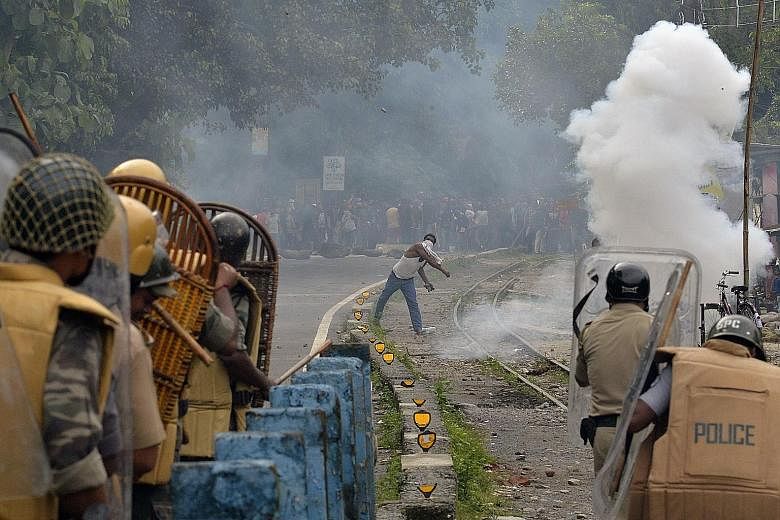DARJEELING (India) • The world faces a shortage of prized Darjeeling tea because of deadly unrest in the idyllic Indian Himalayan foothills where it is grown.
In the dozens of lush green plantations across the picturesque hill station, the June-August harvest season normally provides the bulk of the nearly eight million kg of tea sold a year - most of which goes to Europe. But with a showdown between native Gorkhas, who provide the majority of plantation workers, and the West Bengal state government now 50 days old, production fell by 90 per cent in June.
Tourism has also been badly hit by the dispute in which the main Gorkha group has halted harvesting and called for a shutdown of the tea industry. There have been predictions that prices could rise more than 20 per cent and some Darjeeling tea gardens could take years to recover.
"This year's harvest is lost," Mr Sanjay Mittal, director of Ambiok Tea Estate, said, adding, "If the stalemate ends, we hope to return next year."
But Mr Ankit Lochan, president of the Siliguri Tea Traders Association, said that if the strike continues for another few months, "almost 50 per cent of the estates will close down for at least two to three years".
Tea Board India, the government regulatory body, said only 140,000kg of tea was produced in June, a plunge from 1.33 million kg in the same month last year.
The history and distinctive taste have made Darjeeling one of the world's most recognised food names. British officer Arthur Campbell started planting tea bushes in 1841 in Darjeeling before commercial plantations began in the 1850s.
It is the only Indian brand with international protection, meaning that only tea grown in the region can be called Darjeeling. Speciality teas can sell for up to US$1,800 (S$2,440) per kg.
Clashes and arson attacks have rattled the hills since early June, shutting down businesses and schools and forcing thousands of tourists to flee.
The Gorkha Janmukti Morcha (GJM) has been at the forefront of decades of agitation calling for a "Gorkhaland" within West Bengal.
They say Bengali-speaking outsiders have exploited their resources and imposed their culture and language.
Plantation owners say the blockade has severely affected the delicate tea bushes that have been overrun by weeds.
Gorkhas' demands for a separate homeland started in the 19th century and have regularly surfaced. Unrest in 1980 left nearly 1,200 dead.
The latest flare-up started after the government ordered Bengali language lessons in state schools - angering ethnic Gorkhas who speak Nepali. At least three protesters have been killed in clashes.
Government forces now patrol the streets of Darjeeling while the separatist group has set an Aug 8 deadline for their demands to be met.
AGENCE FRANCE-PRESSE

